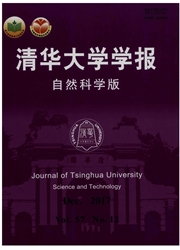

 中文摘要:
中文摘要:
该文研究房价上涨预期对二手房市场逆向选择现象的影响。首先,从理论角度提出房价上涨预期指标与逆向选择程度的测算公式。之后,基于现实二手房市场交易特点设计和实施经济学实验,通过实验模拟不同房价上涨预期条件下的二手房交易过程,并收集数据。最后,基于实验数据对房价上涨预期指标与市场逆向选择程度进行测算,并检验房价上涨预期对市场逆向选择的影响。研究表明:严重的信息不对称是二手房市场产生逆向选择现象的主要诱因;当前市场上交易人的房价上涨预期在一定程度上暂时抑制了逆向选择现象的发生。预防和解决二手房市场逆向选择现象的根本途径是降低信息不对称程度。
 英文摘要:
英文摘要:
This article focuses on the inhibitory effect exerted by house price bullish sentiment on adverse selection in resale housing markets. Firstly, theoretical methods are developed for the bullish sentiment index (BSI) and the adverse selection level (ASL). Economics experiments were then designed to study the resale housing market characteristics in different bullish sentiment environments. The BSI and ASL were calculated from the experimental data to study the effect of bullish sentiment on the adverse selection. The research shows that severe information asymmetry is the main cause of adverse selection in the resale housing market. The bullish sentiment of traders in the market temporarily restrains the adverse selection to some extent. The degree of information asymmetry should be reduced to minimize the adverse selection problem in the resale housing market.
 同期刊论文项目
同期刊论文项目
 同项目期刊论文
同项目期刊论文
 期刊信息
期刊信息
